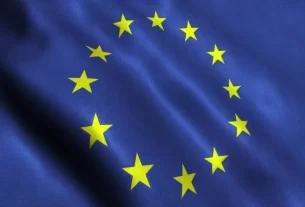ATHENS — Greece’s parliament on Friday approved a contentious amendment aimed at halting a surge of migrant arrivals from Libya, triggering sharp backlash from opposition lawmakers and international rights groups, reported by Anadolu Agency.
The measure, introduced by the Ministry of Migration and Asylum, passed with the support of 177 lawmakers, primarily from the ruling center-right New Democracy party, the nationalist Greek Solution, and several independents. Out of 293 members present, the center-left PASOK and far-right NIKI abstained, while leftist parties including SYRIZA, the Communist Party (KKE), and the New Left voted against.
The amendment imposes a three-month suspension on asylum applications from individuals arriving by sea from North African nations without prior authorization. Migrants under this policy may be returned to their countries of origin or departure without formal registration or assessment of protection needs.
The government defends the law as a necessary step to preserve national sovereignty and border integrity in the face of mounting arrivals to Crete from Libya.
However, the move has drawn concern from the UN refugee agency (UNHCR), which warned that the measure may violate international and EU asylum laws. “To seek asylum is a fundamental human right,” the agency emphasized, cautioning against breaching the principle of non-refoulement, which forbids returning individuals to places where they may face persecution.
Domestically, legal scholars and politicians questioned the amendment’s constitutionality. Former Foreign Minister Evangelos Venizelos warned that invoking emergency powers under the European Convention on Human Rights could trigger Article 48 of Greece’s Constitution, reserved for states of emergency.
During heated debate, the Communist Party called the measure “shameful,” while Course of Freedom leader Zoi Konstantopoulou compared the policy to those of Hungary’s Viktor Orbán and Donald Trump.





